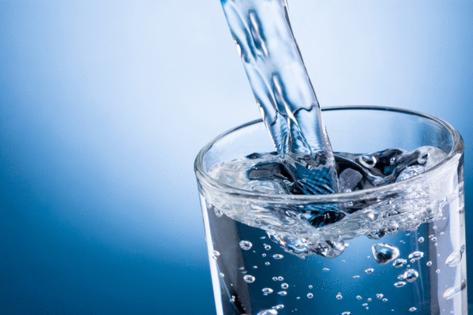On Nutrition: Hydrogen water?
Published in Nutrition
A recent visit to my old stomping grounds in California took us to a wine and cheese tasting at my favorite winery. And what a treat to see the owners, Bill and Mary, who are old friends. Both are doing well and looking much younger than their years.
When we said our goodbyes, Bill asked me to take a look at some promising research he had come across about hydrogen water.
“I don’t know if it’s a hoax or not,” he said, “but it sure has me convinced.”
I assured him I’d check it out, even though my first thought was, "Isn’t all water hydrogen water?" After all, that’s what H2O stands for — two molecules of hydrogen plus one molecule of oxygen.
Turns out the better name for this particular type of water is “hydrogen-rich” water — regular water infused with hydrogen gas. It is tasteless and odorless and apparently nontoxic.
Because it is a tiny molecule, hydrogen can penetrate cells and neutralize harmful molecules called free radicals, which are responsible for the ravages that take place in our bodies over time: aging, inflammation and susceptibility to chronic diseases. It’s this powerful antioxidant effect from hydrogen that most scientists attribute to the promising results they have observed in studies.
For example, a 2024 review on hydrogen-rich water in the International Journal of Molecular Sciences reported evidence that hydrogen-rich water can potentially relieve many everyday maladies including fatigue and pain. It has also been found to improve certain risk factors that lead to heart disease, diabetes and neurodegenerative diseases like Parkinson’s.
This extra hydrogen also appears to be safe, with no side effects, at least in short-term studies. Sound too good to be true? There are some cautions.
Most research to date has been in animals. Human studies have been small and generally lasted less than 6 months. Still, some of the results have shown benefits for a variety of conditions.
In general, research participants ingested between 500 milliliters to 2 liters of hydrogen water a day in concentrations that are all over the map. To date, no optimal dose or duration of use has been established for hydrogen water for any condition, according to Consumer Reports.
Where do you get this hydrogen-rich water? Numerous companies now sell it already bottled, although some experts warn that hydrogen escapes more quickly from glass and plastic containers. Aluminum containers, they say, can retain hydrogen gas for more extended periods.
Machines that generate hydrogen are also available, and so are tablets that can be added to water.
So… encouraging results from studies, at least in the short term. We won’t know anything for sure until larger well-designed studies on humans are completed.
And don’t forget to consume hydrogen every day in good ol’ H2O.
©2025 MediaNews Group, Inc. Distributed by Tribune Content Agency, LLC.










Comments